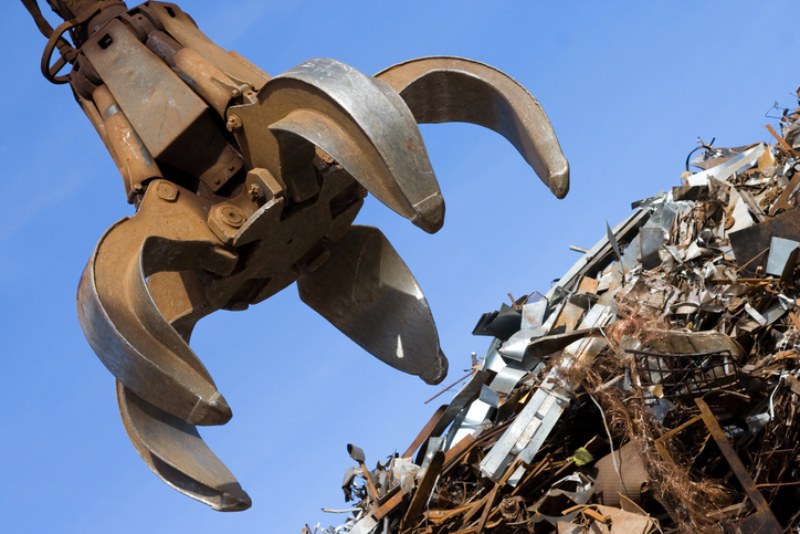5901 Botham Jean Blvd, Dallas, TX 75215
Understanding the Scales at a Scrap Yard
June 16, 2025Accurate weighing is the foundation of a fair scrap transaction. Whether you’re hauling in truckloads of copper wire or just a barrel of aluminum cans, you need to know your scrap is being weighed correctly. This ensures your payment is based on honest numbers, not guesswork. Scrap yard scales measure weight to determine your payout, so make sure you know exactly how they work and how to use them to your benefit.
How Scrap Yard Scales Work
Scrap yard scales determine how much scrap metal you’ve brought in and, therefore, how much you’ll be paid. This process involves three amounts:
- Gross weight: This is the total weight of your vehicle or container when you first drive onto the scale. It comprises everything, including the vehicle, the scrap, and the containers they’re in.
- Tare weight: With the gross weight recorded, it’s time to unload the scrap metal. Once your vehicle or container is empty, the crew weighs it again. This gives you the tare weight, which isolates the actual value of the material you dropped off.
- Net weight: The crew subtracts the tare from the gross to get the net weight. This tells you the amount of scrap you brought in, which determines how much money you go home with.
Most scrap yards use digital scales with printed tickets showing all three values. Some also have truck scales that can handle oversized or industrial loads. No matter the size of the job, knowing how these numbers are calculated ensures you understand your earnings.
What Affects Scrap Metal Prices
Scrap metal prices aren’t set in stone. They shift constantly due to a range of influences, both global and local. Here’s a look at what drives those changes to help you decide when to sell and what to expect when you do:
- Global market demand: Prices spike when manufacturers around the world need more metal. If demand increases in the construction, technology, or automotive industries, you can expect higher returns on scrap.
- Seasonal trends: Warmer months tend to bring more construction and renovation activity, which means greater demand for certain metals. This often leads to price increases in the spring and summer, making these the ideal seasons to sell.
- Economic factors: Global events, supply chain disruptions, and inflation affect how much buyers are willing to pay. If raw materials become scarce, scrap prices surge.
- Metal type and condition: Not all metals are created equal. Copper typically commands higher prices than steel, and clean, well-sorted scrap is worth more than mixed or dirty material.

Tips for Accurate Weighing
Even with honest scales and fair pricing, how you prepare your load plays a big part in your final payout. Here’s how to weigh scrap metal accurately and ensure you get paid for every ounce you bring in:
- Read the scale before weighing your load: Always make sure the scale starts at zero. An inaccurate starting point could reduce your pay.
- Sort metals beforehand: Separate copper from brass and aluminum from steel. Different metals have different values and mixing them can lead to your entire load being priced at the lowest rate.
- Remove contaminants and debris: Clean your scrap as much as possible. Get rid of insulation, wood, plastic, or rubber to earn a higher price and avoid deductions.
- Use lightweight, dry containers: Moisture adds weight but not value. Make sure your bins or containers aren’t holding water, mud, or anything else that could alter the true metal weight.
- Verify the metal categories on your ticket: Before accepting payment, double-check the receipt to ensure each metal type was correctly identified and priced. Mistakes can happen, and a mix-up—like classifying copper as brass—could cost you.
- Ask for clarification when needed: If you’re confused about how your load was weighed or why deductions were applied, don’t be afraid to ask. A reputable metal scrap yard should be willing to walk you through the details.
Make the Most of Every Load with Okon Recycling
Okon Recycling has been part of the Dallas-Fort Worth community for over 100 years. In that time, we have built a reputation for transparency, fairness, and relationships. As a fourth-generation family business, we strive to earn your trust load by load.
Our scrap yard is equipped to handle everything from small-scale drop-offs to major industrial and commercial recycling projects within a 200-mile radius. Whether you’re a contractor clearing out a job site, a demolition company hauling in truckloads, or someone who scraps for a living, we’ve got the scale—and the pricing—to make it worth your while.
Visit our yard, check current scrap metal prices, and prepare your materials for weighing. If you have questions along the way, we’re here to help. Our goal is to make metal recycling a smooth, transparent, and profitable process for our customers.
